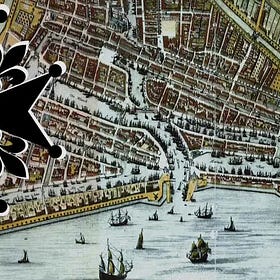The Theology of Jean Claude
Part 3 in a series on Jean Claude, the great Huguenot Preacher and Theologian
If you missed Part 2, click here
As testified in his life and on his deathbed, Jean Claude was a fierce proponent and defender of the Reformed faith. His work that has lived on most famously is his Essay on the Composition of a Sermon. This work was published posthumously in 1688 and again in 1690. It was then translated to English in 1779, capturing the attention of the great preacher Charles Simeon, who added notes to it and republished it in 1840.[1] This was his great work aside from the aforementioned works of dealing with the reformed view of the Eucharist against other perspectives, his account of the persecution of the Huguenots, and his defence of the reformation. He had written other works, and his son, Isaac, took the time and care to ensure that many were published posthumously. His most accessible work, published after his death, is entitled Self-Examination, In Order to a Due Preparation for the Worthy Receiving of the Sacrament of the Lord’s Supper. This work was translated into English and received multiple printings.[2]
Jean Claude lived a deeply pious life. Many of his works have a short biography in their prefaces, and they all include comments on his devotion to Christian piety and his love for Reformed doctrine. His life exemplified these things in three significant ways: his dedication to preaching, his constant struggle against the Catholics, and his exile from France to the Netherlands.
Jean Claude was a dedicated preacher. He “was a man of great piety and learning, he was much sought after, and people were so fond of having him for their pastor, that he was frequently transported from one church to another.”[3]“His discourses from the pulpit were so good, that they were able to support themselves against all the disadvantages that can be supposed to attend a disagreeable voice.”[4] Further to that testimony from a biographer, Jean Claude dedicated time to discipling young preachers during his tenure at Nimes. “The students of divinity reaped no small advantage from his private lectures, and familiar conversation during his residence.”[5]
Jean Claude spent two different periods in Paris for the express purpose of clearing his name with the hope of returning to his ministry in Nimes and Montaubon. Claude was fearless and relentless in his work to confront the theological errors of the Papists and ensure that the Reformed Church maintained her rights under the Edict of Nantes. He was called to remain in Paris at the Charenton church through God's providence. He continued advocating for the Huguenots' plight amid a significant struggle against the French crown.
Claude’s dedication to local church ministry, preaching, and defence of the Reformed faith is shown in his treatment immediately following the revocation of the Edict of Nantes. Whereas all the Huguenots were forced to convert to Catholicism or leave France within two weeks, Jean Claude was honoured with the directive to leave within twenty-four hours. This is a testimony to his influence within the Huguenot church and the threat he posed to the Catholics. This esteem was furthered when he arrived in the Netherlands and was warmly welcomed by William of Orange, who provided a pension for Claude to live on for the rest of his life.
Jean Claude lived and breathed his faith in every element of his life. The various biographers are unanimous in their recollection of his piety and dedication to the Reformed cause in France.
Read Part 4:
Personal Reflections From My Study of Jean Claude
I learned a great deal from my study of Jean Claude. Firstly, I learned about the French Huguenots' detailed origins, struggles, and eventual demise. I chose this topic simply because I knew practically nothing about them and wanted to learn about such an impactful moment in Reformed Church …
[1] J. Wesley White, “JEAN CLAUDE (1619-1687): HUGUENOT PASTOR AND THEOLOGIAN,” Mid-America Journal of Theology, no. 19 (2008), 201.
[2] Ibid, 201.
[3] Jean Claude, Self-Examination, In Order to a Due Preparation for the Worthy Receiving of the Sacrament of the Lord’s Supper, English (Edinburgh: Gavin Hamilton and Company, 1732), iii.
[4] Ibid, x.
[5] Ibid, iv.





